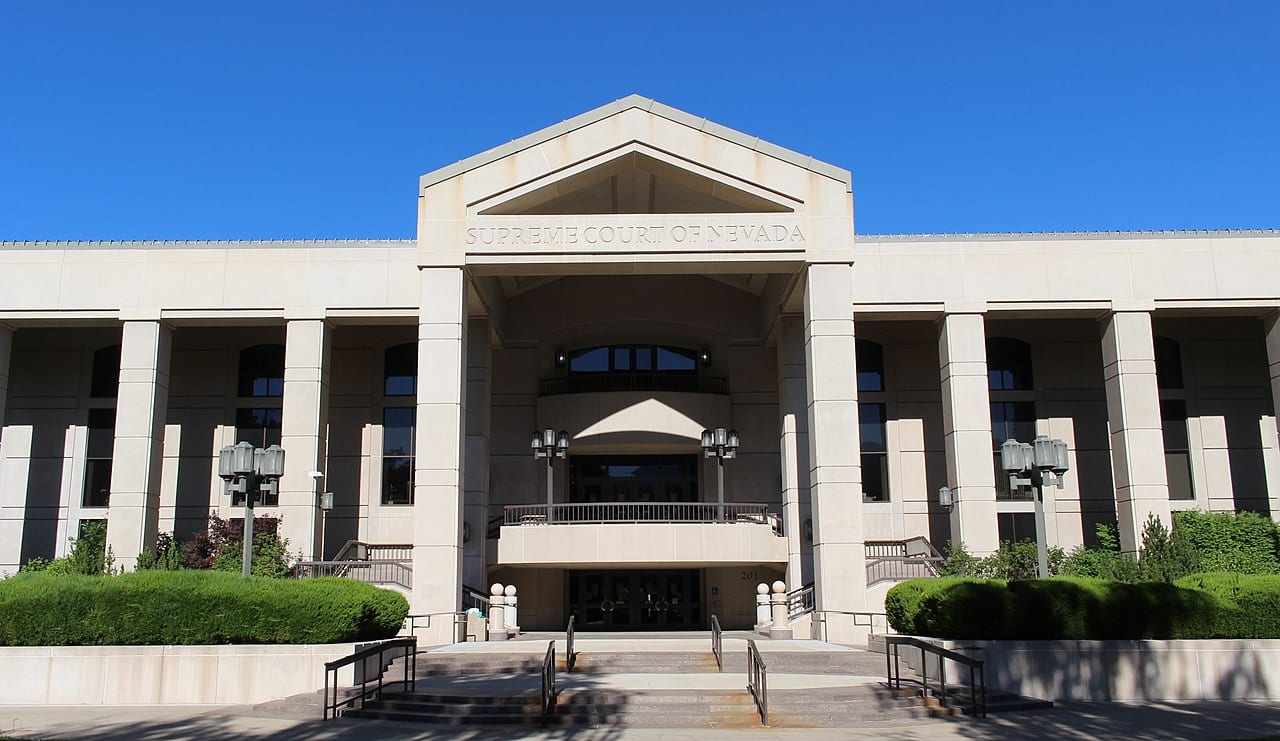LAS VEGAS — When Daphne Williams filed a complaint against a realtor in 2017, calling him racist and sexist, she probably had no idea she’d end up fighting a First Amendment battle in Nevada’s highest court.
Williams said she had a frustrating experience with a realtor, Charles “Randy” Lazer, in Las Vegas. Williams was renting a condo, and, without having her own realtor, sought to purchase it from the owner. The owner’s realtor was Lazer.
Williams, who is Black, alleged Lazer’s behavior during the buying process was racist, sexist and unprofessional. There were delays in the process, and at one point Lazer said to Williams, “Daphne, I think you are going to be successful. When you become successful and you want to buy a bigger house and if your brother is retired by then, I’d be glad to be your realtor.”
Williams took offense. She said the statement implied she was not already successful. Williams filed a complaint against Lazer to the Nevada Real Estate Division (NRED).
She had already called Lazer racist and sexist in a text message. Lazer responded with a demand letter, saying he had legal claims against her. He threatened to sue her if she did not apologize.
That’s when Williams filed the NRED complaint. Lazer, in turn, filed a defamation suit against Williams.
The lender’s agent in the transaction also said he was offended by Lazer.
“Without prompting, he provided personal information about himself that he headed a community service project delivering food to low income African Americans, that he played and wrote jazz, ‘which is truly at the very heart of black/ African culture,’ and that he had never been accused of being racist before,” a court document showed. “As an African American man who had not accused Mr. Lazer of anything, I found these comments to be odd, uncalled for, and extremely unprofessional.”
Lazer’s attorneys argued that what Williams said was false.
“Appellant made numerous false factual allegations which were verified as false in not only Respondent’s declaration, but perhaps even more importantly, by the declaration of the seller of the property at issue…” they wrote. “When Appellant submitted her false statements to NRED, she displayed, at the very least, a reckless disagreed for the fact that such an act could cause Respondent great emotional distress and stress because he would then be subjected to a possibly career-ending investigation.”
Court says claims not supported
Nevada’s Eighth District Court in late November ruled, on appeal, Williams’ statements against Lazer were defamatory.
The judges said claims that Lazer acted unethically were not supported by the record.
“The fact that the NRED conducted an investigation and closed the case without imposing discipline lends credence to Lazer’s argument that Williams falsely accused him of unethical conduct as a realtor,” they said. Further, claims of racism and sexism could also not be determined.
“Because Williams does not provide adequate evidence of these racist and sexist emails or texts, and there is evidence to the contrary, the district court correctly concluded also as to this point, that it could not determine the she made her complaint to the NRED in good faith,” the judges added.
Anti-SLAPP motion filed
Marc Randazza, an attorney frequently defending clients in First Amendment cases, is representing Williams. He defended Williams with an Anti-SLAPP motion. Anti-SLAPP, or strategic lawsuit against public participation, is a legal mechanism designed to defend people from being frivolously sued for defamation. Nevada’s Anti-SLAPP laws in theory grant quick relief to those accused of defamation, as well as awards for attorney fees.
But that is not always the case. This Is Reno has reported on two other SLAPP cases, both of which are at the Nevada Supreme Court and remain undetermined after years, with legal bills mounting for defendants.
Randazza said of the court’s decision, “the level of enlightenment in this case is just slightly above Dred Scott.” The Dred Scott case of 1857 had the U.S. Supreme Court decide the U.S. Constitution did not grant citizenship or constitutional rights to Black Americans.
He said the implications of the case could have far-reaching free speech implications because the court’s ruling, essentially, says Williams was not entitled to feel the way she felt about the situation with the realtor.
“Mr. Lazer’s lawsuit is a classic SLAPP suit, as it is designed to retaliate against Ms. William(s) for engaging in constitutionally protected petitioning activity based on her heartfelt opinions,” Randazza argued in court.
Williams clearly made her statements in good faith — either as truthful statements, or in the belief that her statements were truthful, he added. Both, legally, should protect Williams’ speech.
“‘Good faith’ has nothing to do with being ‘nice,’ or being ‘statements the plaintiff agrees with,’ nor any other contorted meaning that SLAPP plaintiffs try to twist it to me,” he wrote. “If the statements are truthful or the defendant has no knowledge of their being false, they are made in ‘good faith.'”
Williams’ statements, he added, are statements of opinion — clearly protected speech. “They are also expressions of evaluative opinion based on disclosed facts.”Since the court disagreed, Randazza said they are appealing Williams’ case to the Nevada Supreme Court.


